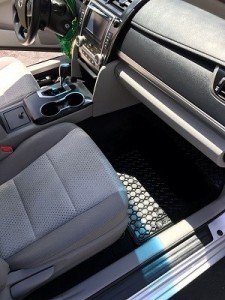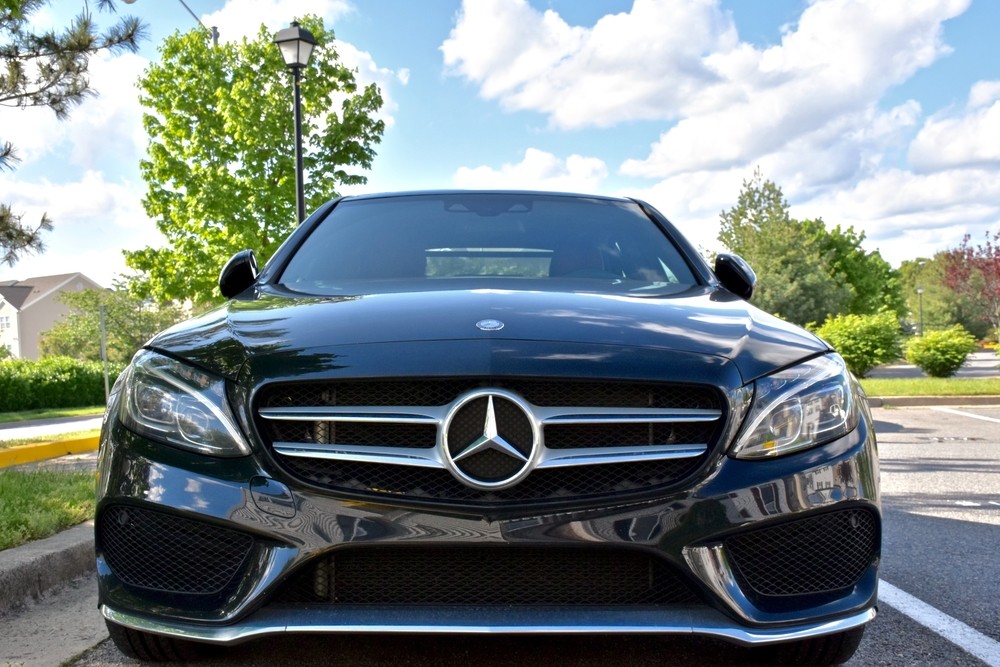It’s finally happening. Summer months are at the doorstep, and although this is the best piece of news for most Canadians, the time has come to start thinking about direct sunlight and how it affects your car’s paint job. Long-term exposure to direct sunlight will definitely produce damage to your car’s lovely color, much like it does on your skin. The reason for this is the ultraviolet (UV) rays, a very powerful cause of paint fading. However, there are many useful preventative actions and car detailing tricks you can follow in order to prevent such damage to your car.
What Kind of Damage Does Direct Sunlight Produce?

UV rays are basically invisible enemies to your car. Once they make contact with a surface, the molecules of that object get a jolt of energy that is usually reflected as heat. However, sometimes these energy jolts can result in broken molecular bondage, and when this happens to paint, long-term exposure results in less reflection. This makes your car’s paint job look dull, featureless and faded.
Some Colors Do Fade Faster
Long-term exposure to UV rays will result in a certain amount of damage to any color. However, some colors do fade faster than others. Out of all the colors out there, red will be the first one to go, so to speak. Blue, for example, will endure much more, because blue coloring agents reflect the higher energy light from the spectrum instead of absorbing it.
What Kind of Detailing Helps Prevent Sunlight Damage?
The problem with fading caused by UV exposure is that it’s irreversible. In other words, there’s no trick you can do, at least not without professional repainting, to restore your car’s previous glow. When it comes to sunlight and paint, preventative car detailing is key. Here’s what you can do:
Wash your car regularly
Regular car washing helps reduce the amount of polluting agents that accelerate fading. Keeping your car clean will certainly help prevent damage to your car’s paint job.
Tip: Never wash your car while it’s hot! The rinse water and soap will evaporate faster on a hot surface and leave those nasty water spots behind.
Hand dry the exterior
Once you wash your car, the best thing to do is to dry it by hand. Yes, this process can be very time-consuming, but you should never leave it out to air dry. Use a synthetic chamois or a clean towel to dry your car effectively from top to bottom.
Keep your car in the shades
The most obvious way to protect your car from sunlight damage is to limit the exposure. Of course, this doesn’t mean you can never park your car in direct sunlight, but try to avoid this as much as possible. Leave your car in an underground garage, under a tree, in any kind of shade you can find.
Wax Your Car
When you go to the beach, you put on protective sun cream, right? Well, there are many car waxes that provide this kind of “sunblock” for your vehicle. They contain ingredients that provide protection against UV rays, which will help your car’s paint look fresh longer. Quality car waxes provide an extra layer of protection from polluting agents as well. Talk to your car detailing experts about the right type of car wax that will help you prevent UV damage.
Tip: It’s always good to invest a little extra in quality waxes and auto detail. Regular maintenance helps protect your car in the long run, and you’ll certainly feel much better driving a car that’s in tip-top shape.
Protective coating helps
An even better layer of UV light protection for your car is a protective coating. These substances basically provide an extra shield for your car’s paint, while letting the color shine through at the same time. Such products come in liquid sprays or film layers that can be applied by professional car detailers. Ceramic car coatings such as Ceramic Pro are the perfect solution for achieving a more durable layer of gloss. They also protect the exterior from common wear and tear, exponentially reducing scratches and frequent maintenance costs.
